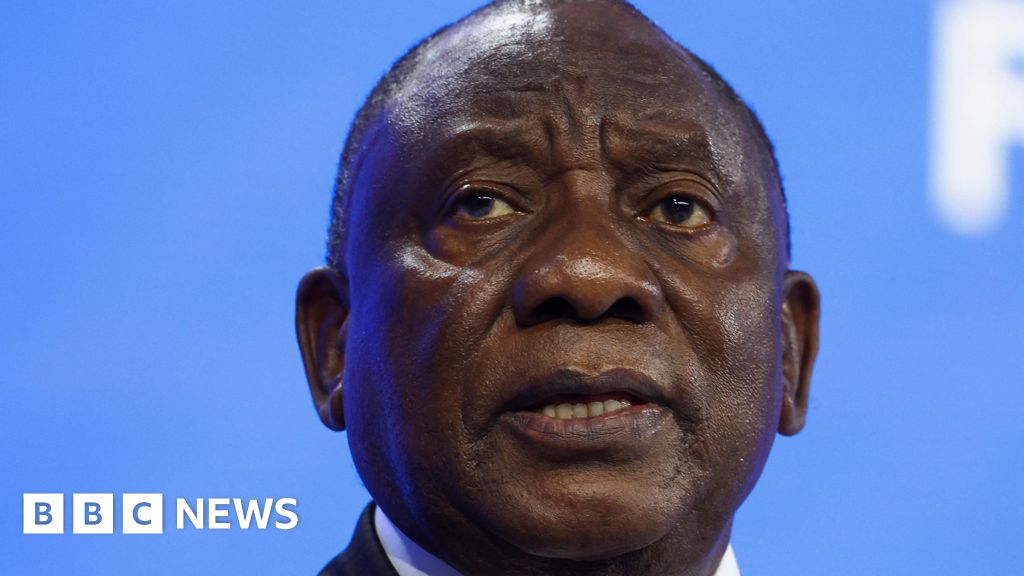 |
|
The international stage is currently witnessing a significant diplomatic standoff between the United States and South Africa, stemming from South Africa's recent land reform legislation. US President Donald Trump's announcement of a potential complete cessation of US funding to South Africa has ignited a heated debate, highlighting the complex intersection of historical injustices, economic development, and international relations. At the heart of the controversy lies South Africa's amended land reform bill, which aims to accelerate the redistribution of land previously concentrated in the hands of a white minority, a lingering legacy of the apartheid era. While proponents argue the bill is necessary to redress historical injustices and promote equitable land ownership, critics express deep concerns about the potential economic consequences and the possibility of arbitrary land seizures. The US, under Trump's administration, has voiced strong opposition, citing concerns about the potential for violating property rights and harming the South African economy. This action underscores a complex dynamic in international relations, where humanitarian goals and economic interests often clash.
Trump's decision to threaten the complete cessation of US funding, approximately $440 million in 2023, is a drastic measure that has immediate and far-reaching implications. The potential impact on South Africa's economy, particularly its development programs and crucial social initiatives reliant on this US aid, is substantial. Furthermore, Trump's actions raise questions about the role and responsibilities of developed nations in assisting developing countries grappling with historical inequalities. Critics argue that the threat of funding cuts might impede South Africa's efforts to address its deeply ingrained social and economic challenges stemming from the legacy of apartheid. The decision also raises concerns about the potential for interference in South Africa's internal affairs, questioning the balance between international cooperation and national sovereignty. The statement, delivered via social media and subsequent briefings, lacks the diplomatic nuance often expected in such high-stakes international matters, adding to the already tense situation.
South Africa's government has responded to Trump's threat with a measured approach, emphasizing its commitment to constitutional democracy and the careful implementation of its land reform policies. They maintain that the new law does not permit arbitrary land seizures, requiring attempts at negotiations and agreements with landowners before expropriation can occur. However, fears remain about the potential for unintended negative economic consequences, reminiscent of the experiences in Zimbabwe, where similar land reform measures resulted in severe economic disruption. The South African government has appealed for a deeper understanding of its land reform policies, hoping to foster a more informed and respectful international dialogue. The clash between Trump's administration and South Africa highlights the fundamental differences in perspective regarding land ownership, historical redress, and the role of foreign aid in addressing complex social and economic issues. The ongoing debate serves as a stark reminder of the challenges involved in balancing competing interests, particularly when addressing issues with deep historical roots and potential economic consequences.
Beyond the immediate political ramifications, this situation necessitates a broader discussion on the complexities of land reform in post-colonial societies. Successfully addressing historical injustices and promoting equitable land distribution requires a nuanced approach, acknowledging the need for economic stability and investor confidence. The South African government's commitment to a process of negotiation and agreement, while not without its critics, underscores an attempt to balance the competing goals of fairness and economic viability. The international community's response to this situation will be crucial in determining the long-term implications, not only for South Africa's land reform efforts but also for similar initiatives in other nations struggling with legacies of colonialism and inequality. The case serves as a cautionary tale regarding the potential pitfalls of hasty international intervention and the importance of respectful dialogue in navigating complex geopolitical issues. The future will undoubtedly witness continued scrutiny of South Africa's land reform process, and the impact of this diplomatic row will likely shape the trajectory of international relations and development aid for years to come.
Source: Donald Trump to cut off funding for South Africa over land seizure policy
